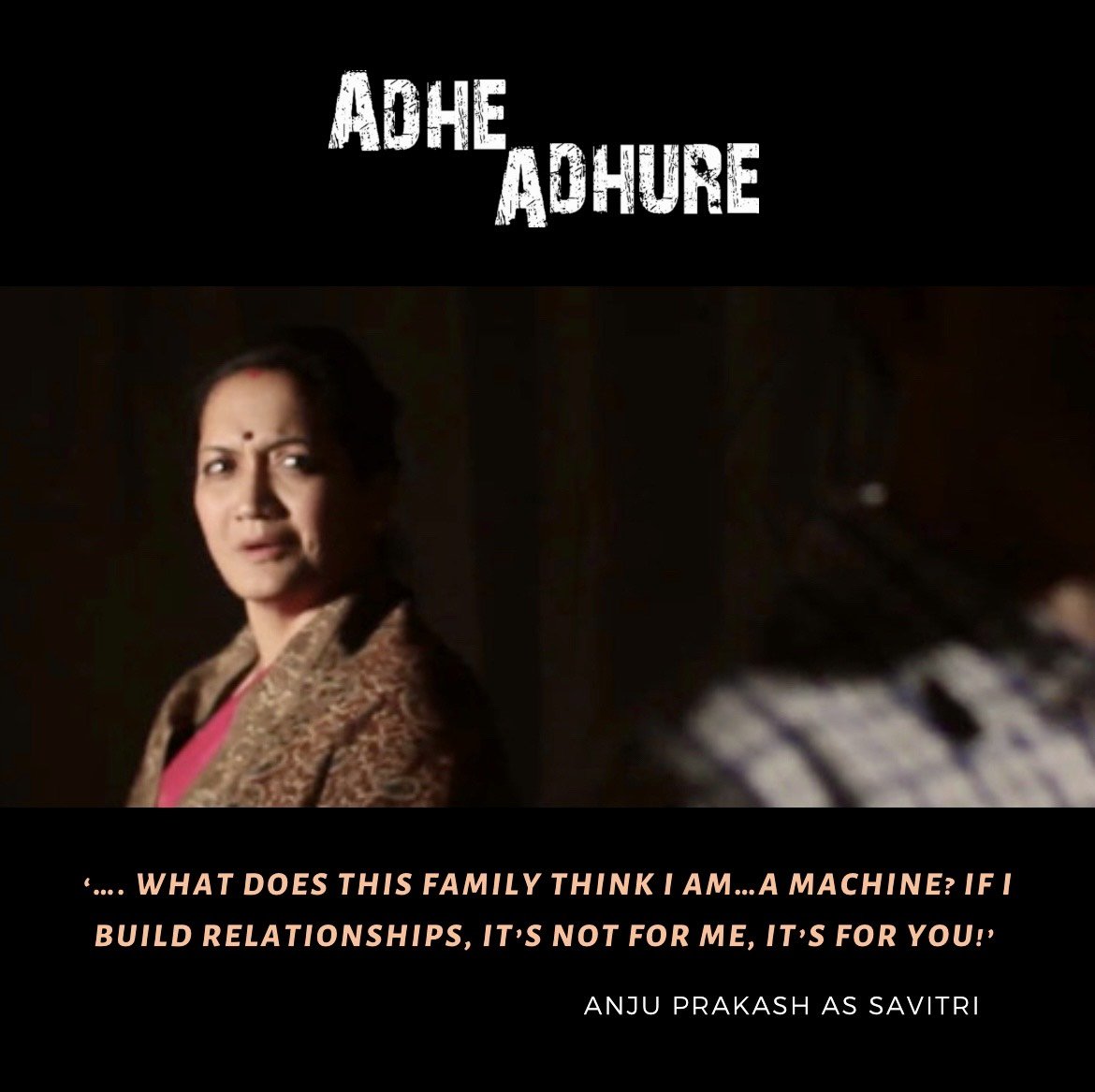Anju Prakash on playing SAVITRI
Indian mythology has many legends of Savitri, but for many of us born in India during the 70s, even if we don’t remember the myth, the words "Sati Savitri" are very evocative. According to the legend, Yama, the Hindu god of death, comes to take Savitri's husband Satyavan away, but then succumbs to her simplicity, presence of mind, and unwavering loyalty to her husband. Yama frees Satyavan's life from his clutches and makes Sati Savitri a household name that glorifies chastity and fidelity in a woman.
The Savitri of old is portrayed as a docile, domestic, and traditional woman conforming to her society's chauvinistic rules. However, Mohan Rakesh's Savitri, as I perceive her, is the antithesis of her legendary namesake. She embodies the struggles of achieving female independence and emotional equity in a patriarchal society. She challenges a man's right to dominate just because of his gender and asks, "When is a man really a man? Should he not have some substance to be called a man?"
Savitri is materialistic and mercurial, ambitious and affectionate, flirtatious and fierce – a melange of traits that make her an uncommon woman for her times. Even when the chips are down, she is forever optimistic that life will somehow change for the better. In the face of economic adversity, she rises to the occasion, making the sacrifices needed for her family.
However, Savitri often feels unappreciated. She has a complex relationship with her husband Mahendranath. Her feelings of anger and disappointment towards him are in constant conflict with her obligations as a wife. She is anxious about the future of her children and their life choices. She yearns for love, companionship, and a sense of purpose beyond her roles as a wife and mother. The play depicts how despite things falling apart around her, Savitri remains committed to them while looking for a source of hope and an intellectual escape.
Savitri's character represents the struggles of many women caught in the whirlpool of tradition and modernity. Her story serves as a reminder of the importance of empathy, emotional understanding, and support for women who are struggling to find their place in the world.
It has been a privilege for me to play Savitri’s role.

